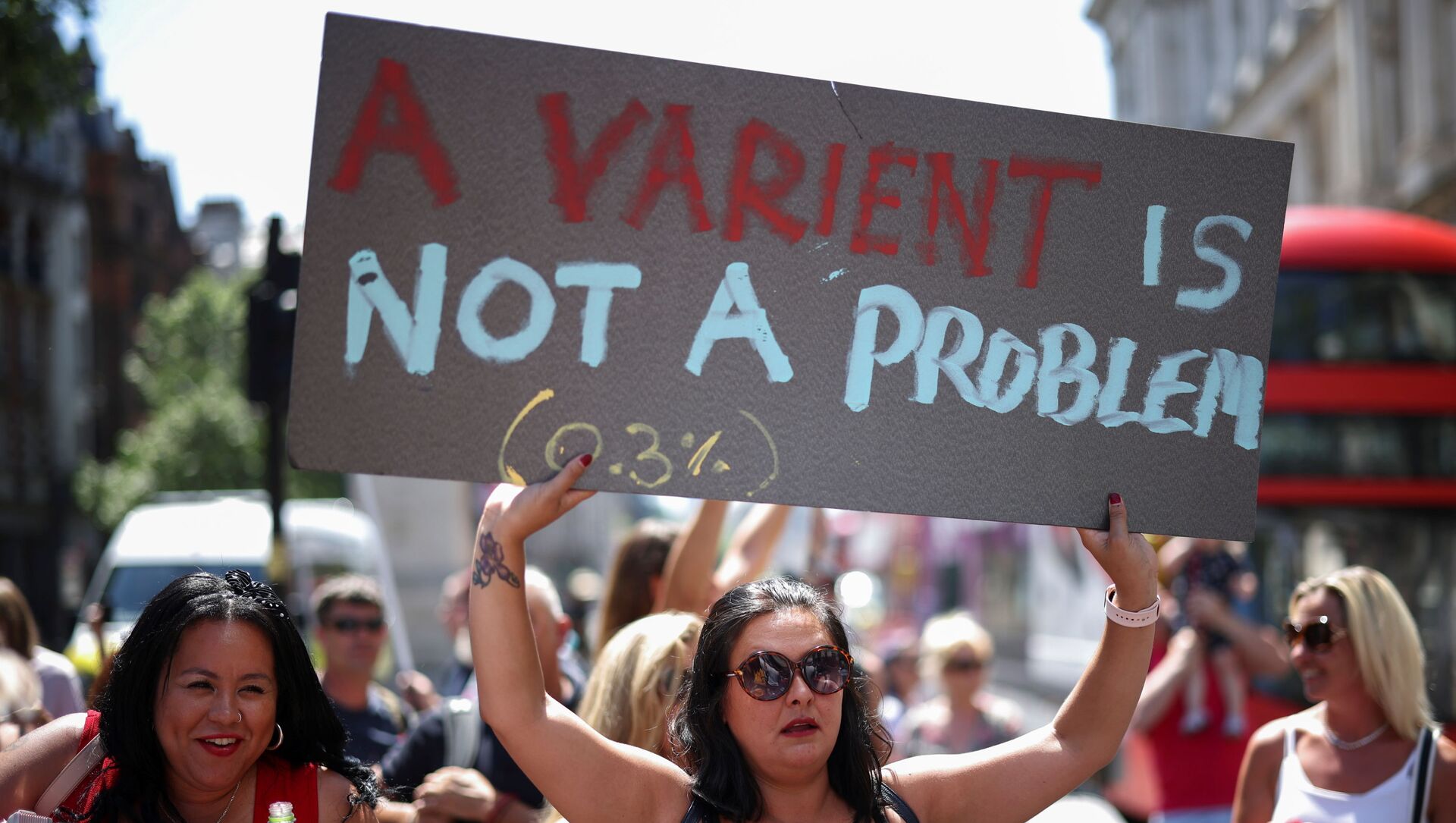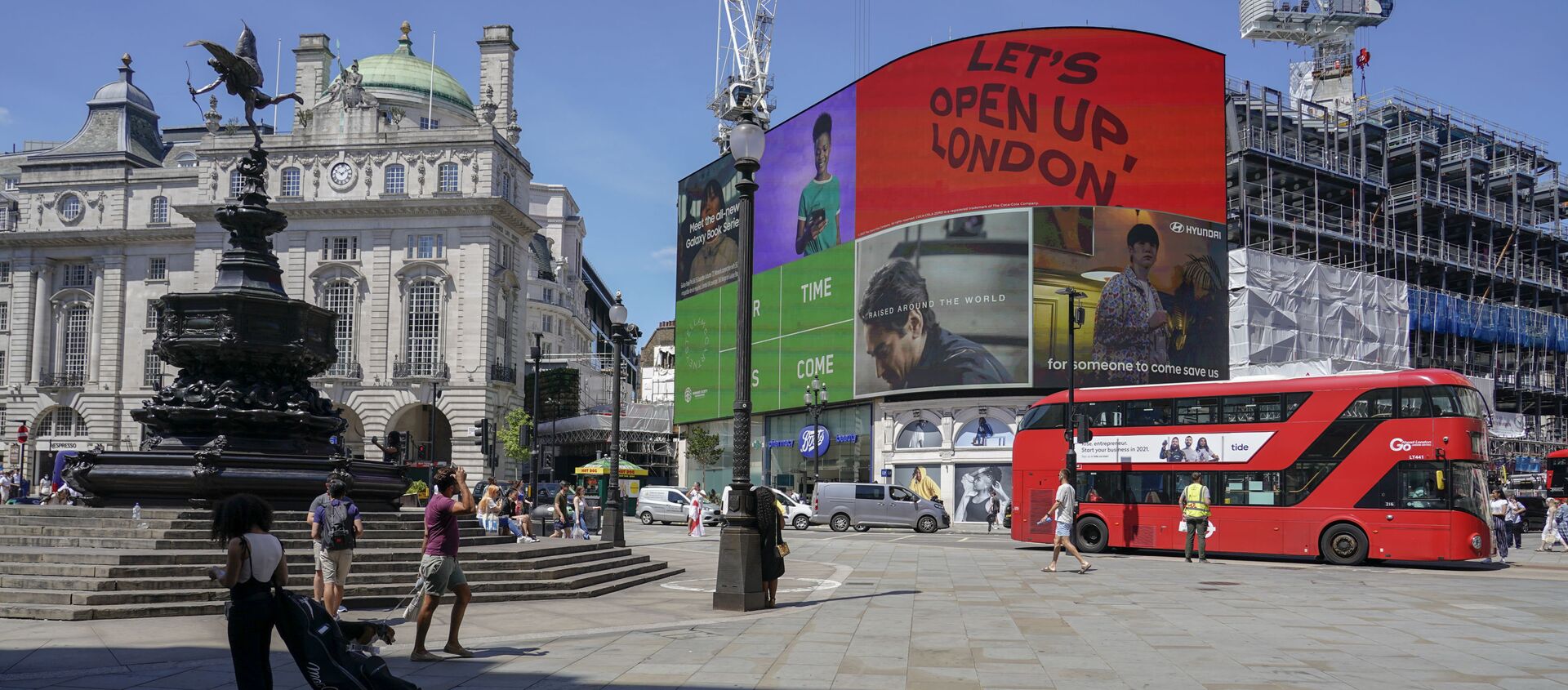The British government's latest COVID-19 lockdown extension has been called into question as data shows the rise in cases falling below official predictions.
Prime Minister Boris Johnson and his chief advisors warned on June 14 that the number of new infections was set rise by 64 per cent per week, as they announced a four-week delay to the fourth and final stage of lifting restrictions from 21 June to 19 July in response to the more-infectious Delta variant.
Hospital admissions were up by almost 40 per cent on the previous week to 226 daily, but deaths had risen by just 12.5 per cent — and the overall trend remained flat some four weeks after case numbers began to rise again in late May, when pubs and restaurants were allowed to serve indoors again.
Lockdown sceptics asked how that squared with Downing Street's commitment to "data, not dates".
— Andrew Lilico (@andrew_lilico) June 19, 2021
Conservative MP Mark Harper, chairman of the 70-strong COVID Recovery Group of Tory backbenchers, pointed to top government pandemic advisor Dr Susan Hopkins' comments to the BBC's Nick Robinson that annual winter lockdowns may be necessary.
— Mark Harper (@Mark_J_Harper) June 20, 2021
The data also showed that by Saturday evening, 81.6 per cent of UK adults — almost 43 million — had been given at least one dose of the COVID-19 vaccine, and 59.5 per cent had already had their booster jab.
Former Brexit Party leader and broadcaster Nigel Farage told Fox News that the immunisation programme had broken the link between cased and deaths, stressing the rise in cases was mainly among the young who are not at risk of serious illness.
— Nigel Farage (@Nigel_Farage) June 19, 2021



